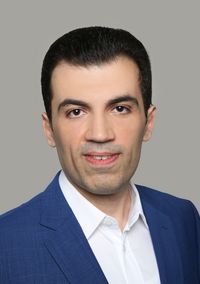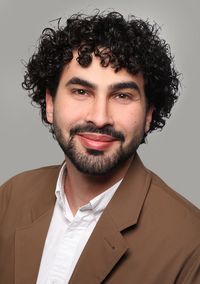Africa and Middle East
The division's work is focused on social and political transformation, domestic and regional conflicts, as well as questions relating to external and security policies in Africa and the Middle East.
Head
-

Areas of Expertise
- Iran
- Defence and security policy / Armed forces
- Elites and elite change
- Political systems
-

-

Areas of Expertise
- Southern Africa
- Human rights
- Migration
- Strategic partnerships
- Sustainability governance
Research
-

Areas of Expertise
- Israel
- Middle East
- Palestinian Territories
- Syria
- Civil wars
- Fragile states
- Middle East conflict
- Political systems
- Regional and interstate conflicts
-

Areas of Expertise
-

-

Areas of Expertise
- Libya
- Sahel
- Civil wars
- Fragile states
- Regional and interstate conflicts
-

Areas of Expertise
- Ethiopia
- Horn of Africa
- Sub-Saharan Africa
- Sudan
- Civil wars
- Conflict prevention
- Peacebuilding
- UN missions
- United Nations Security Council
-

-

-

Areas of Expertise
- Natural resources management
- Strategic partnerships
- Sustainability governance
-

Areas of Expertise
- Arabian Peninsula
- Kurds in the Middle East
- Middle East
- Jihadism
- Political Islam / Islamism
- Terrorism
-

-

Areas of Expertise
- Sahel
- Sub-Saharan Africa
- Civil wars
- Defence and security policy / Armed forces
- Political systems
-

Areas of Expertise
- East Africa
- Ethiopia
- Horn of Africa
- Somalia
- South Sudan
- Sudan
- Civil wars
- Fragile states
- Jihadism
- Political systems
- Regional and interstate conflicts
-

Areas of Expertise
- Algeria
- Maghreb / North Africa
- Morocco
- Tunisia
- Arab Spring
- Elites and elite change
- Political Islam / Islamism
- Political systems
Research Support
-

Areas of Expertise
- Sub-Saharan Africa
-

-

-

-

-

-

-

-

-

Areas of Expertise
- North Africa and Middle East
Social Media
Follow us on Bluesky!
SWP Publications
-
SWP-WebMonitor Cybersicherheit und Digitalpolitik Nr. 6/2025
12.12.2025, 18 Seiten -
Staatsfonds und Außenpolitik
Wie Saudi-Arabien, die VAE und Katar in ihre Macht investieren
SWP-Studie 2025/S 18, 04.12.2025, 31 Pagesdoi:10.18449/2025S18
-
Metallische Rohstoffe: Versorgungssicherheit als geoökonomische Gestaltungsaufgabe
in: Mehr Macht, weniger Markt – Denken und Handeln in der geoökonomischen ZeitenwendeBeitrag zu einer Sammelstudie 2025/S 16, 30.10.2025, 116 Pages, pp. 57–63
-
Der vierte saudische Staat
Reformen des Kronprinzen in Politik, Gesellschaft und Wirtschaft
SWP-Studie 2025/S 15, 27.10.2025, 34 Pagesdoi:10.18449/2025S15
-
SWP-WebMonitor Cybersicherheit und Digitalpolitik Nr. 5/2025
13.10.2025, 23 Seiten -
The Political Fallout of European Migration Policy in Libya
Consolidating the Detention System, Empowering Warlords and Provoking Backlash from the Libyan Public
SWP Comment 2025/C 41, 26.09.2025, 8 Pagesdoi:10.18449/2025C41
External publications
-
The Astonishingly Easy Path to International Legitimacy of Khalifa Haftar’s LAAF
in: Stephan Hensell, Klaus Schlichte (eds.), Armed Groups and the Politics of International Legitimation, Oxford University Press, 15 December 2025, pp. 236-259 -
How is Syria's political transition progressing?
A year ago, rebel forces ousted Syria’s Assad regime. How has the country changed since?
in: Qantara, 05.12.2025 -
Wie läuft der politische Übergang?
Im Dezember 2024 stürzten Rebellen das Assad-Regime in Syrien. Wo steht das Land heute?
in: Qantara, 05.12.2025 -
Anhaltende Gewalt im Sudan: "Krieg gegen Zivilbevölkerung"
Interview, in: ZDF heute, 29.10.2025 -
"Es geht um Kontrolle des gesamten Landes"
Bei den Kämpfen im Sudan gehe es um Macht und Ressourcen. Die Angriffe der RSF in der Darfur-Region haben zudem eine ethnische Dimension.
Interview, in: ZDF heute, 29.10.2025 -
Interview zu Sudan
Interview, in: SR - Bilanz am Abend, 29.10.2025 (ab Minute 3:40)